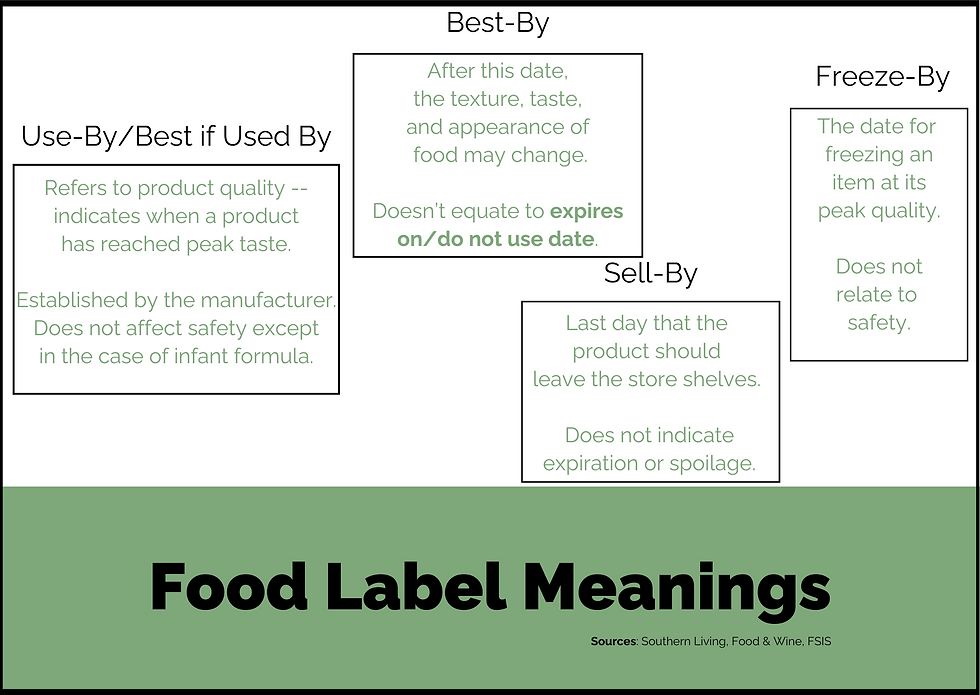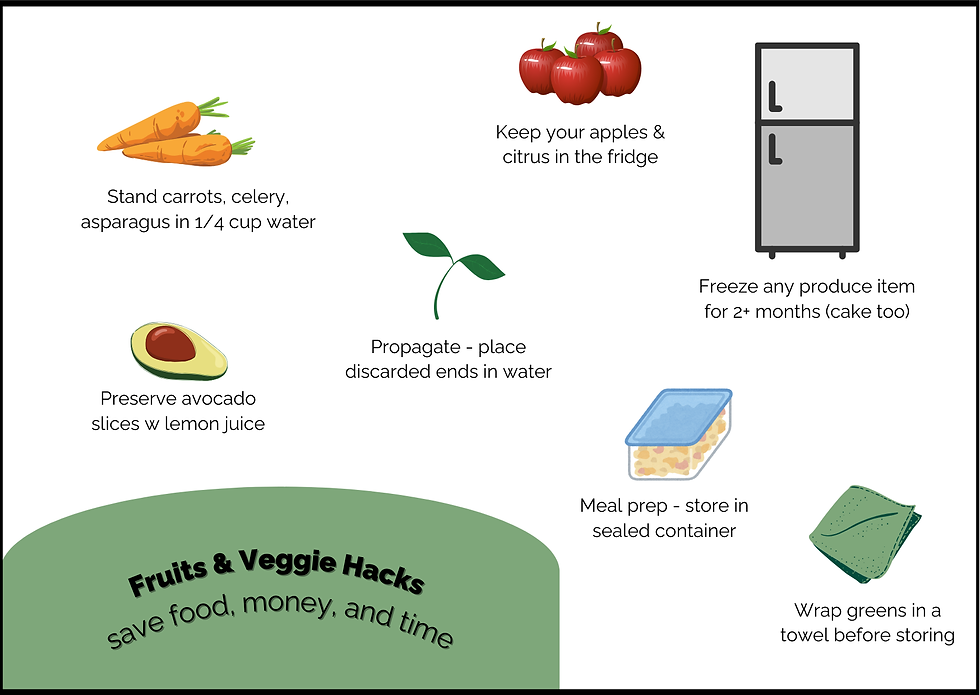By Giulia Lallas
According to a study by Harvard University, ⅓ of the food produced around the globe is wasted. The EPA furthers this analysis by affirming that over 85% of the emissions from food waste in landfills come about before the food even hits the stores. Thus, it’s important to be mindful of the food you choose and the process it goes through before it’s in your possession because production, transportation, processing, and distribution matter. The decomposition of the food in landfills also causes methane, a gas key to speeding up global warming.
Despite the gravity of uneaten food, in 2022, 924 million people worldwide were linked to high levels of food insecurity. As these figures increase, more and more proposals arise to fight them. The EPA put out a visual representation championing food recovery. Signing up to help associations with a bigger reach such as Feeding America is also a resource to help those struggling with food inequality in the U.S.
In the meantime, small steps to reduce your food waste carbon footprint–like starting a compost bin, going to a local vendor, or making a grocery list with exact amounts of food needed–are excellent places to start. Next time you’re in the kitchen, try making vegetable stock from scratch or syrup from your strawberry tops. Bonus tip: storing your compost goods in the freezer can help prevent them from going bad or starting to smell!

There are many digital initiatives aimed at reducing food waste as well. Apps like Too Good To Go (TGTG) are expanding and partnering with more and more of your favorite restaurants. Help them so they don’t fall victim to the trend of filming their excess food being thrown away.
TGTG was created with both restaurants and supermarkets in mind. It calls for consumers to reserve a surprise bag filled with food that businesses would otherwise throw away. The consumer then picks up the bag after or around closing and is met with a load of food and a great deal (as the prices are very budget-friendly).
On the other hand, when eating in or going grocery shopping, understanding the true meaning behind food labels such as “sell by” and “best if used by” is key to prolonging the life of any food item too.

Furthermore, volunteering with a local nonprofit tackling this societal obstacle allows you to become part of a community of like-minded individuals (and can even get you free groceries).
As a student on a budget, I volunteered with an Italian organization that operates in various markets across Italian cities to collect food that vendors would otherwise throw away. We collected the food, sorted it, and got in touch with local organizations that came and picked it up. Some markets collect over 500kg of fruits and veggies weekly! That being said, organizations have limits for how many donations they can carry with them in one day so often we volunteers would take the extras home.

Getting inspiration from Netflix’s “Best Leftovers Ever” which hit the screens in 2020 is also a fun means for staying creative and on budget. Shows like this one are a step in the right direction as they combine innovation with ease.
Take some time for yourself in the kitchen and celebrate your health and the planet by making leftover recipes like the (delicious) one below.

The SuperCook app or website is also an easy way to put those random pantry ingredients to good use–just type what you have and watch as it generates a range of cool recipes. In other words, when it comes to zero-waste living SuperCook is your right-hand site.
The world of kitchen tips and tricks to extend the life of your fruits and veggies is life-changing as well. Save these tips to make your fruit and vegetables last longer so you don’t feel bad about wasting money–or food.
All in all, food waste is a tricky but resolvable issue. Join the anti-food waste movement today by starting small!


Comments